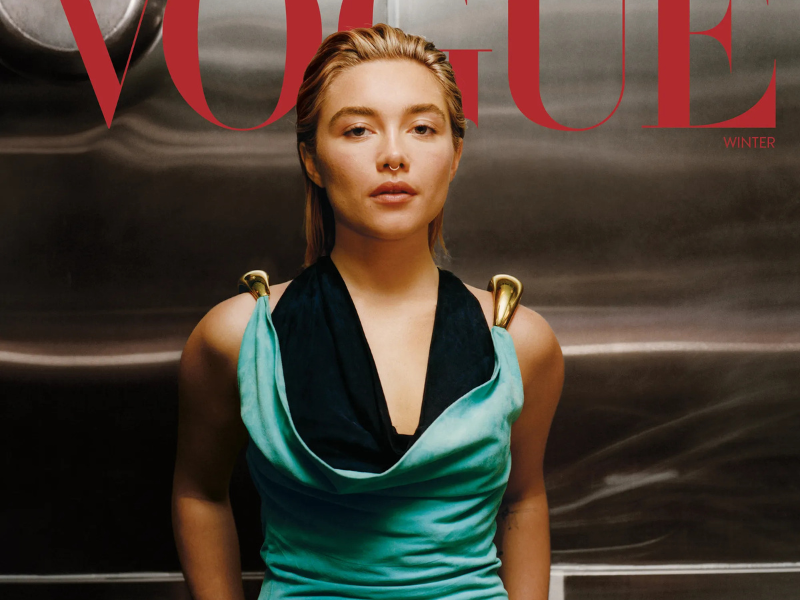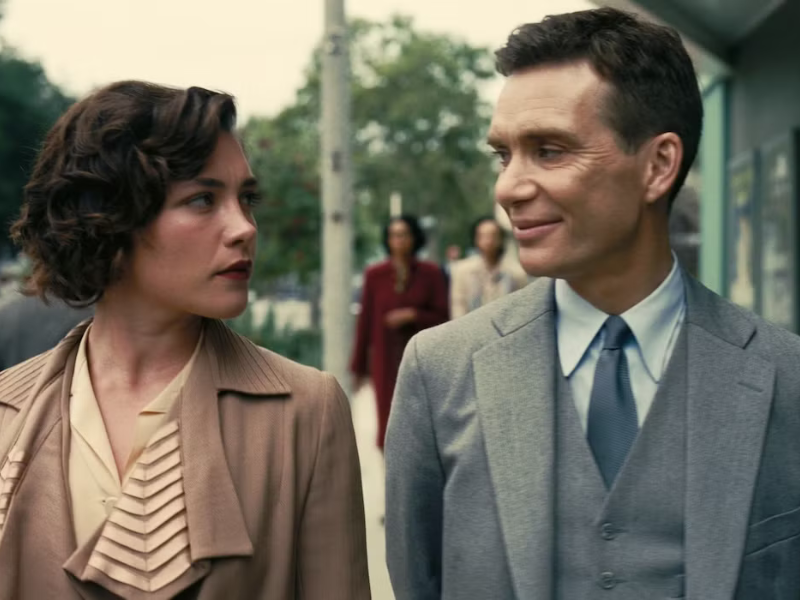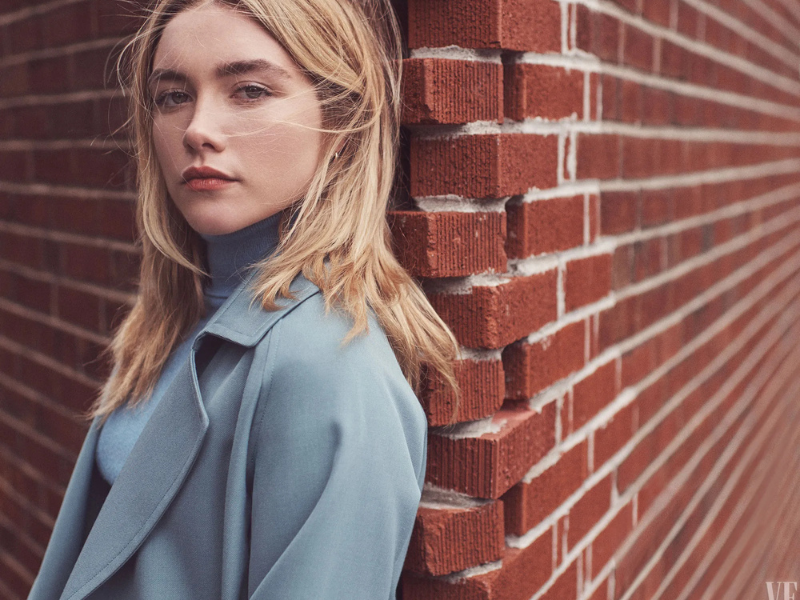Introduction: A New Face of British Cinema
The landscape of global cinema is constantly evolving, and every decade presents new stars who redefine artistry, storytelling, and audience connection. Florence Pugh stands as one of the most compelling actors of her generation, carving a path that blends authenticity, versatility, and courage. Known for her powerful screen presence, remarkable ability to embody diverse characters, and her refusal to be confined by stereotypes, Pugh has rapidly become a household name in both independent film circles and Hollywood blockbusters.
Her journey to global fame reflects not only her personal determination but also the broader evolution of British talent making waves internationally. From her early life in Oxford to becoming a sought-after performer on the global stage, Florence Pugh represents the resilience, creativity, and adaptability that define modern acting.
Early Life and Influences
Florence Pugh was born on January 3, 1996, in Oxford, England. Raised in a supportive family that valued creativity, she was encouraged to explore the arts from a young age. Her father, a restaurateur, and her mother, a dancer, nurtured her creative spirit while allowing her the freedom to carve her own path.
A significant aspect of her early life was her battle with health issues, including tracheomalacia, a condition that affected her breathing. Instead of letting this challenge hold her back, Pugh transformed it into resilience, which would later define her performances. She grew up surrounded by a family that valued artistic expression—her siblings are also engaged in creative fields—providing her with a strong foundation for pursuing a career in acting.
During her formative years, she developed a deep appreciation for music and performance. She sang, played guitar, and uploaded cover songs on YouTube under the name “Flossie Rose,” showcasing her natural talent and confidence. This early exposure to public expression laid the groundwork for the fearless authenticity she would bring to her film career.
The Breakthrough: The Falling (2014)
Florence Pugh’s professional debut came in Carol Morley’s The Falling (2014), a British drama set in an all-girls school during the 1960s. In her role as Abbie Mortimer, Pugh displayed raw talent and emotional depth that immediately caught the attention of critics and industry insiders.
Although only 18 at the time, her performance revealed maturity and a natural ability to inhabit complex characters. She was nominated for the British Independent Film Award for Best Newcomer, an early recognition that signaled the beginning of something remarkable.
While The Falling may not have been a mainstream box office success, it positioned Pugh as a rising talent within the British film industry. More importantly, it highlighted her unique presence on screen—an ability to draw viewers in with understated intensity and emotional honesty.
Struggles and Determination in the Early Years
The years following The Falling were not immediately filled with stardom. Like many young actors, Pugh faced the challenges of auditioning, typecasting, and navigating the competitive world of film and television. Her determination during this period, however, became one of her defining traits.
She consistently sought roles that challenged stereotypes of young women in film. Instead of leaning toward lighthearted teen dramas, she gravitated toward darker, more layered roles that allowed her to showcase her range. This decision reflected her ambition to become an artist rather than a celebrity.
Her resilience paid off when she landed roles in projects like Lady Macbeth (2016), which would cement her reputation as a serious actor.

Lady Macbeth: A Career-Defining Performance
William Oldroyd’s Lady Macbeth (2016) became Florence Pugh’s breakout role, propelling her from rising newcomer to critical darling. In the film, she played Katherine Lester, a young woman trapped in a loveless marriage in 19th-century rural England. Her character undergoes a chilling transformation as she rebels against oppression, leading to acts of manipulation and violence.
Pugh’s performance was nothing short of mesmerizing. She balanced vulnerability with ruthlessness, crafting a character who was both sympathetic and terrifying. Critics praised her ability to command the screen, with many describing her as one of the most promising talents of her generation.
The role earned her the British Independent Film Award for Best Actress and established her as a force to be reckoned with in international cinema. Lady Macbeth was not only a breakthrough for Pugh but also a statement of her artistic priorities: to seek roles that challenge, provoke, and explore the complexities of human nature.
Expanding Horizons: Independent and International Roles
Following the success of Lady Macbeth, Pugh avoided being pigeonholed by carefully selecting projects across genres and formats. She appeared in The Commuter (2018), Outlaw King (2018), and Fighting with My Family (2019).
Her role in Fighting with My Family particularly showcased her versatility. Playing real-life wrestler Saraya-Jade Bevis (better known as Paige), Pugh underwent physical training to embody the character. The film combined humor, heart, and resilience, allowing her to portray a working-class British woman breaking into the world of professional wrestling.
This role was significant because it connected her with broader audiences, introducing her to Hollywood while maintaining her down-to-earth authenticity. It also demonstrated her commitment to immersive preparation, whether that meant learning combat techniques, perfecting an accent, or diving into the psyche of her characters.
Hollywood Breakthrough: Midsommar (2019)
In 2019, Florence Pugh achieved global recognition with Ari Aster’s Midsommar, a psychological horror film that became a cultural phenomenon. Playing Dani, a young woman coping with grief while becoming entangled in a sinister Swedish cult, Pugh delivered one of the most haunting and memorable performances in modern horror.
The role demanded immense emotional stamina. Pugh portrayed grief, trauma, and psychological unraveling with a realism that left audiences shaken. The infamous “crying scene” in the film became emblematic of her willingness to embrace raw vulnerability on screen.
Critics hailed her performance as one of the most powerful in recent horror cinema. Midsommar not only solidified her reputation as a fearless performer but also showcased her ability to carry a film as its emotional core.
Little Women: Academy Award Nomination
The same year, Florence Pugh took on a very different challenge: playing Amy March in Greta Gerwig’s adaptation of Little Women (2019). Traditionally seen as one of the less sympathetic March sisters, Amy became, through Pugh’s performance, a layered, relatable, and compelling character.
Her interpretation of Amy was widely praised for its nuance. She captured both the flaws and the strengths of the character, transforming her from a spoiled child into a determined woman with ambitions and vulnerabilities. Her ability to portray Amy across different stages of life highlighted her range as an actor.
For this role, Florence Pugh earned an Academy Award nomination for Best Supporting Actress, cementing her position as one of Hollywood’s most promising talents. Within one year, she had gone from indie horror star to Oscar nominee—a trajectory few actors achieve so rapidly.

Transition to Global Stardom
By the end of 2019, Florence Pugh had become a household name, respected by critics, adored by fans, and sought after by directors. What set her apart was not only her talent but also her grounded personality and willingness to speak candidly about the realities of Hollywood.
Her authenticity resonated with younger audiences, particularly as she used social media to connect directly with fans. Pugh’s openness about body image, career challenges, and personal identity positioned her as both a role model and a relatable figure in an industry often accused of promoting unattainable ideals.
Florence Pugh’s Expanding Global Presence
Florence Pugh’s reputation is no longer limited to the borders of the United Kingdom. Her talent, versatility, and fearless approach to roles have earned her recognition in Hollywood and across international cinema. Directors from around the world view her as a performer who can anchor a story with intensity while still maintaining subtlety and relatability.
Her breakout role in Midsommar (2019) introduced her to a wider global audience. The film’s unique storytelling and unsettling atmosphere demanded a central performance that could balance fragility with strength, and Florence delivered exactly that. Her portrayal of Dani, a young woman coping with grief while being drawn into a bizarre Swedish cult, won international acclaim. This role cemented her ability to lead psychological dramas, and critics around the globe praised her fearless embodiment of complex emotions.
Following Midsommar, Florence’s career reached new heights with her role as Amy March in Greta Gerwig’s Little Women. Here, she transformed a once-criticized character into a figure of resilience, ambition, and surprising charm. Audiences who might have once dismissed Amy as vain were won over by Florence’s layered interpretation. The film introduced her to American and Asian markets in particular, significantly raising her profile and resulting in her first Academy Award nomination for Best Supporting Actress.
Entering the Blockbuster Era
A defining aspect of Florence Pugh’s journey has been her seamless transition from independent films to major studio blockbusters. While many actors struggle to balance artistry with mainstream appeal, Florence manages both. Her casting as Yelena Belova in Marvel’s Black Widow and the Disney+ series Hawkeye showcased her as a strong yet witty character that quickly became a fan favorite.
Marvel fans were instantly charmed by her sharp sense of humor, emotional depth, and on-screen chemistry with Scarlett Johansson. Unlike some performers who get lost in the spectacle of comic-book cinema, Florence infused Yelena with humanity and relatability, elevating the character beyond typical action-movie stereotypes. This role opened doors to an even broader international audience, solidifying her position as a household name across continents.
Her blockbuster involvement does not detract from her credibility as a serious actress. Instead, it demonstrates her adaptability—proving that she can headline art-house projects while also excelling in billion-dollar franchises. This dual ability has made her one of the most sought-after actresses in the world today.
Collaboration with Esteemed Directors
Florence Pugh’s journey to global fame is marked by her collaborations with some of the most respected directors of contemporary cinema. Her work with Ari Aster (Midsommar), Greta Gerwig (Little Women), and Christopher Nolan (Oppenheimer) showcases the confidence directors have in her skill. Each of these projects required a performer who could bring unique intensity to the screen, and Florence rose to the challenge every time.
In Oppenheimer (2023), she took on the role of Jean Tatlock, a woman whose tragic relationship with J. Robert Oppenheimer influenced his personal and professional life. The part required both vulnerability and boldness, and Florence delivered a performance that stood out even in a star-studded ensemble cast. Her scenes carried emotional weight and highlighted her ability to hold her own among legendary actors.
These collaborations not only highlight her talent but also demonstrate her growing influence in shaping the narratives of modern cinema. With each role, Florence continues to prove that she belongs to the league of performers who define their generation.
Florence’s Influence Beyond Film
Florence Pugh’s rise is not limited to acting alone. She has also become a style icon and a voice of authenticity in the entertainment industry. Known for her bold red-carpet choices, she often challenges conventional beauty standards, sparking important conversations about body positivity and self-expression. Her decision to embrace transparency about both her professional and personal challenges has earned her admiration from fans worldwide.
On social media, Florence has carved out a unique space where she interacts with fans in an unfiltered and genuine manner. Whether sharing cooking sessions on Instagram or openly discussing the pressures of Hollywood, she connects with audiences in ways that feel personal and refreshing. This relatability has contributed to her international appeal, making her not just a star but also a cultural figure who resonates with people across borders.
The Expanding Horizon of Global Fame
What makes Florence’s journey especially remarkable is how she continues to balance artistic credibility with mainstream popularity. Many rising actors face the challenge of being boxed into a single type of role or audience market. Florence, however, has successfully diversified her portfolio. From independent dramas to historical epics and superhero sagas, she is proving that her career trajectory is not bound by limits.
With upcoming projects spanning various genres and industries, including more Marvel appearances and collaborations with critically acclaimed filmmakers, Florence’s horizon only continues to expand. Her career is shaping up to be one defined not just by star power but also by resilience, experimentation, and authenticity.
Legacy in the Making
While Florence Pugh is still at the early stages of what promises to be a long and successful career, her impact is already undeniable. She has redefined what it means to be a rising star by combining critical recognition, global box-office success, and cultural influence in a relatively short time.
Her legacy is not only about the roles she has played but also about the standards she has set for authenticity in Hollywood. In a time when audiences are increasingly craving performances that feel real and relatable, Florence stands out as a symbol of truth on screen.
If her current trajectory continues, Florence Pugh could become one of the defining actresses of her generation—an icon who bridges classic cinema with the evolving demands of the modern entertainment world.

Looking Ahead: The Future of Florence Pugh
The future for Florence Pugh is filled with possibilities. Upcoming projects promise to showcase her in new lights, whether through more Marvel appearances, challenging dramatic roles, or experimental independent films. Industry insiders speculate that she may eventually transition into producing or directing, given her keen understanding of storytelling and her vocal advocacy for artistic freedom.
Audiences, critics, and fellow actors alike anticipate each new project with excitement, knowing that Florence will bring intensity, vulnerability, and brilliance to the screen. Whether in period dramas, action franchises, or avant-garde experiments, she has already proven her ability to captivate viewers and critics alike.
Her journey is not merely about building a career but about redefining the path of modern stardom. Florence Pugh’s combination of fearlessness, relatability, and artistic integrity ensures that her story is still unfolding—and the best chapters may still be ahead.
Conclusion
Florence Pugh’s rise to global fame is more than just a story of an actress achieving stardom—it is the narrative of a performer who has embraced risk, authenticity, and bold choices. From her early performances in Lady Macbeth to her international breakthrough in Midsommar and Little Women, and her transition into the Marvel Cinematic Universe, Florence has proven her range and resilience.
She has positioned herself not only as one of the finest talents of her generation but also as a cultural icon who reflects and shapes the evolving values of modern cinema. Her influence extends beyond the screen, inspiring young actors, fans, and industry leaders alike.


